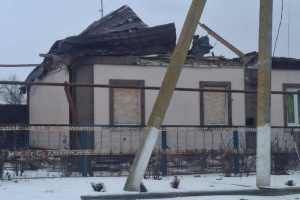
Lukashenko, Putin have different plans for Wagner Group in Belarus - watchdog
That’s according to the Center for Combating Disinformation at the National Security and Defense Council of Ukraine, Ukrinform reports.
"The deployment of part of the Wagner Group to the Republic of Belarus should be considered as the result of certain agreements between Lukashenko and Putin, while at the same time each pursues their own goals. Lukashenko expects that the Wagnerians will strengthen the guarantees of him retaining power. Meanwhile, Putin hopes that the mercenaries of the ‘pardoned’ Yevgeny Prigozhin will serve as a reliable monitor of the Belarusian dictator’s behavior with the opportunity to intervene if something goes wrong – to this end, the Wagnerians are actively penetrating all security agencies in the Republic of Belarus," the report states.
According to the CCD, the mercenaries are currently engaged in training the Belarusian military and sharing their combat experience with the local territorial defense.
"Also, according to Polish security forces, more than 100 fighters from the Wagner Group, disguised as Belarusian border guards, are stationed near Grodno, helping migrants illegally cross the Belarusian-Polish border," the watchdog informed.
Separately, the agency stated that experts currently assess as unlikely Russia's use of the territory of Belarus as a springboard for an attack on the north of Ukraine. It is noted that the Russian Federation is forced to amass troops on the Ukrainian front lines, so part of the Russian forces were transferred to Ukraine from other parts of Russia.
"Yes, the Russian troops and Wagner mercenaries located in Belarus are not enough to launch an offensive, and the strengthening of the Russian contingent by the Belarusian military is complicated by the attitude of Belarusian society to their participation in the ‘special military operation’ (about 50% of Belarusian youths do not support Russia’s actions in Ukraine)", wrote the CCD.
The monitor stated that it is impossible to foresee with certainty whether Belarus will actually use Russia’s tactical nuclear weapons, some of which are believed to have been transferred there earlier.
"However, the anti-nuclear consensus in Belarusian society (from 60 to 70% do not support the deployment of nuclear arms) and the expected reaction on the part of NATO clearly prove to Lukashenko that the Alliance's response to such a move would destroy both his dictatorial regime and the statehood of Belarus in general," the CCD reported.
This is why Lukashenko avoids any direct confrontation with the Ukrainian troops at all costs and is in conflict with Putin on the issue, the watchdog suggests. "It is obvious that for the Kremlin, the placement of tactical nukes in a subordinate state aims to intimidate the West and force it to stop helping Ukraine," the report says.
Separately, the CCD noted that what is happening near the borders of Poland and the Baltic states is a sort of challenge not only for Poland but also for the Alliance in general.
The “test of the Alliance's resolve” involving the audacious breach of Poland’s airspace by helicopters is not an isolated incident but another stage in the escalation between the Russian Federation and NATO. The Kremlin's readiness for provocations is based on the confidence that the West will not dare a direct full-scale conflict between NATO and the Russian Federation or between the United States and the Russian Federation," the CCD said.
The Center noted that therefore the flight of Belarusian helicopters over the territory of Poland and the buildup of Wagnerians in Belarus, both left without an adequate response from the Alliance, send the Kremlin a clear signal that they might pursue with impunity the tactics of inciting tensions at the borders of other countries.
"So, despite the assurances of the State Border Guard Service that the Belarusian direction is now safe, the relevant forces are monitoring the movement of mercenaries across the Republic because hybrid attacks on the border will most likely continue," the report states.




